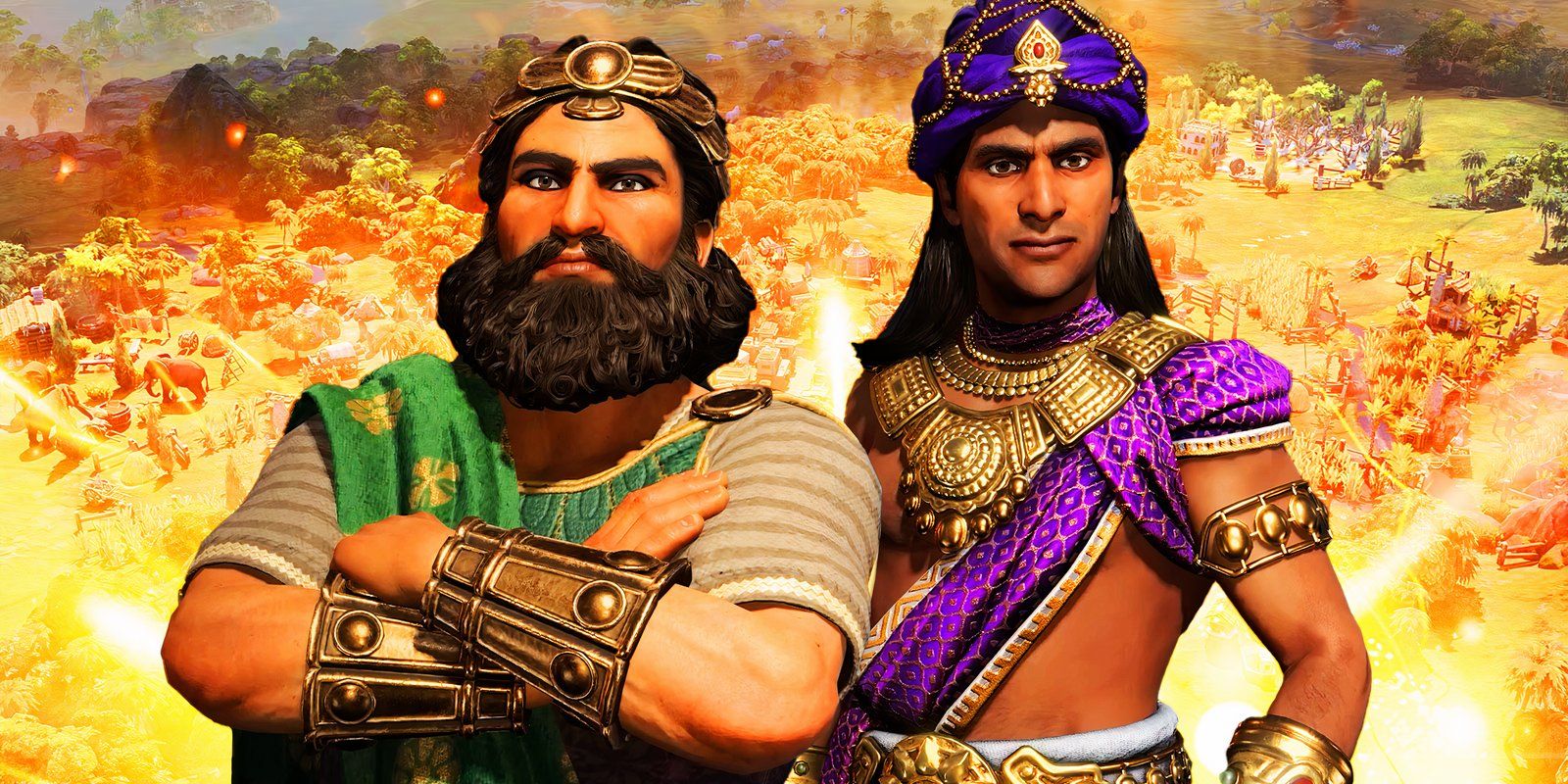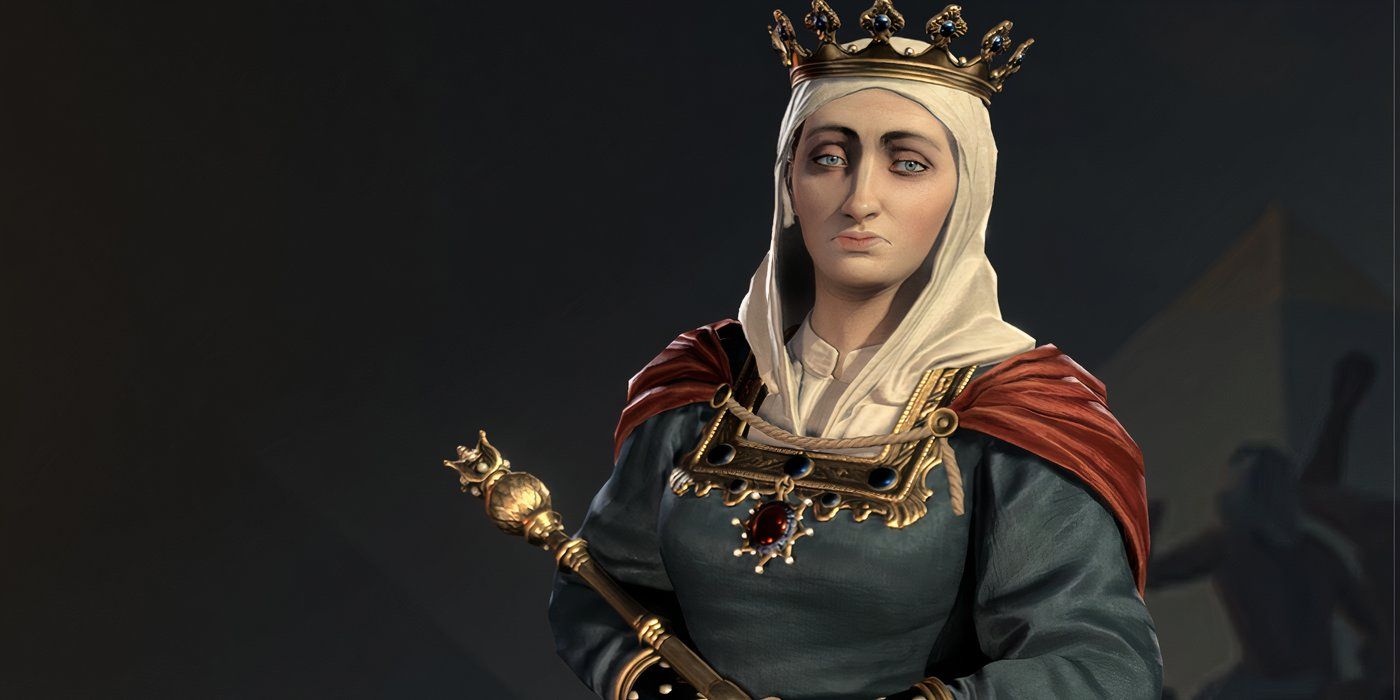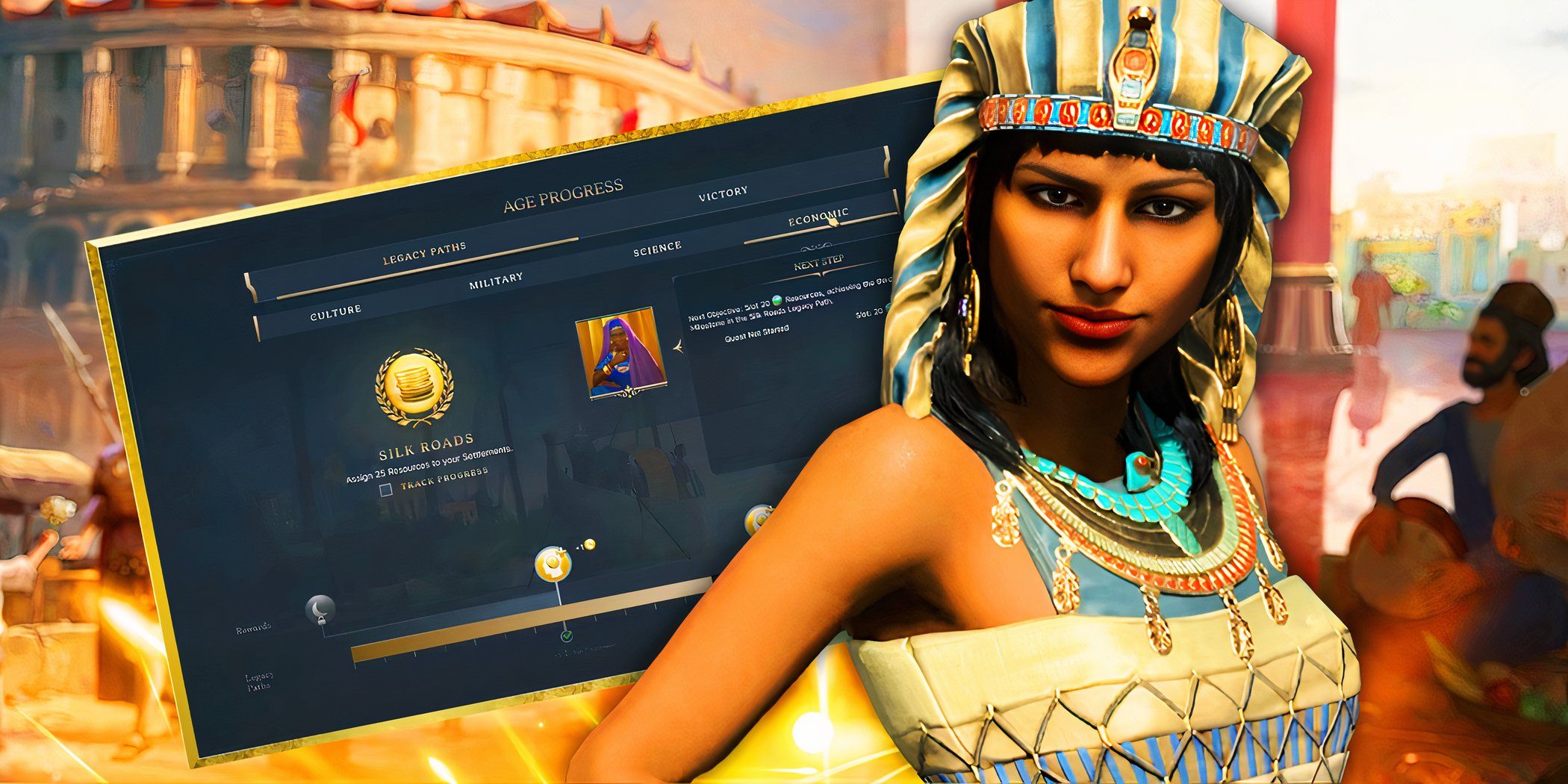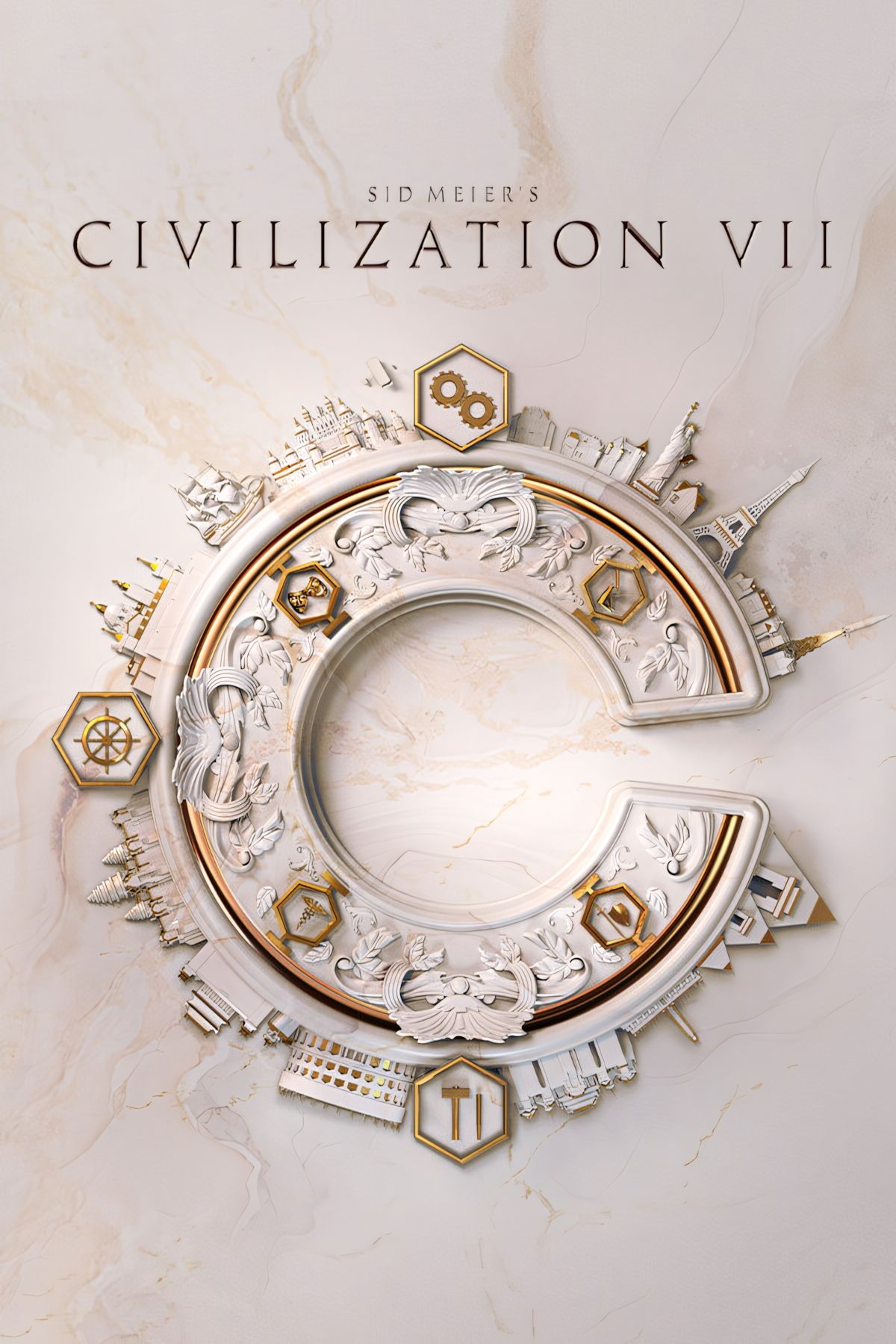In ramping up for its eventual launch, Sid Meier's Civilization 7 laid out a series of issues from previous games (mostly Civ 6) that this installment sought to address. These include snowballing, micromanagement, and civ balance, three major issues that prevented Civ 6 players from completing campaigns in their entirety. Snowballing is the idea that a civilization will start small and "snowball" into an unstoppable force, placing players at an extreme advantage or disadvantage that cannot be overcome. Civ 6's micromanagement issues were of particular concern, as late gameplay requires cycling through an extensive array of units and Production queues.
The balance issues that Civ 7 seeks to address from Civ 6 relate to how and when a civilization is most effective during a campaign. If a particular civilization doesn't come online until late in the game, there's not much incentive to use it. All three of these concerns from previous games have definitely been addressed, but as a result, new problems have been introduced. Overall, Civilization 7 succeeds in improving the problematic features of its predecessors, but it faces a whole new wave of issues that will be tough to solve.
Civ 7's New Systems Solve Old Problems
No More Snowballs Or Micromanagement
As far as accomplishing its stated goal to solve these problems, Civ 7 goes above and beyond. Micromanagement has been reduced substantially due to a variety of factors, such as the removal of Builder units, the introduction of Towns that don't require Production queues, and Commander Units that make moving armies or fleets significantly more efficient. These are undeniable wins for Civ 7 and make completing a campaign more achievable — and more fun. While there are still some tedious aspects to the game, the presented solutions for micromanagement are absolutely successful in making the experience less cumbersome.

Related
Civ 7: All Antiquity Age Unique Civic Trees & How To Use Them
Civilization 7 has ten Antiquity Age civilizations, each with their own unique Civic Trees that provide one-of-a-kind bonuses and effects.
Snowballing has also been addressed effectively with the introduction of the Ages system that breaks the game into three distinct parts. The hard reset during an Age transition prevents players from becoming obscenely powerful (though it is still possible to do so within a given Age). These Age transitions also offer players a chance to pivot to a new strategy by changing civilizations, reacting to the demands of the specific campaign. Further, while Legacy Points give players a leg up with an eventual Victory project, there will always be opportunities for the underdog to pull off a comeback.
Civ 7's Approach To Balance Could Be A Big Help
A More Equal Playing Field

Finally, civilization balance has been addressed, most directly by completely confining all civilizations into designated Ages. Now, as each leader chooses a new civ at the start of each Age, the playing field remains equal across the Ages, with each civ being catered specifically to those Ages. Regardless of which path a leader takes across the ages, strategic play should make it possible to get the most out of every Age without having to struggle through early-game weaknesses for late-game benefits.

Related
How To Complete All Legacy Paths In Civ 7's Antiquity Age
The four Legacy Paths in Civilization 7's Antiquity Age include the Cultural Wonders of the Ancient World and Military Pax Imperatoria.
Leaders may have a slight bent toward features in a particular Age, such as Isabella's Distant Lands ability for the Exploration Age, but none of these bonuses are enough to tip the scales unreasonably in anyone's favor. Civ balance can also be adjusted within each Age via patches or Mods if an individual ability/civilization appears too overpowered.
Thanks to its changes, Civ 7 should have a much higher chance of keeping players interested and invested in a campaign to see it through to the end. Unfortunately, in addressing these problems, Civ 7 has also introduced a whole new set of issues that don't have immediately clear solutions. These include concerns about the impact that Age transitions have on momentum, the historical and logical disconnect between Civs and Leaders, and more rigid gameplay resulting from the Legacy Path system.
Civ 7's Solutions Introduce New Problems
Disruptive Age Transitions Kill Momentum
While the Ages system is extremely effective at reducing snowballing, it's also extremely disruptive to the flow of gameplay. At the beginning of the Exploration and Modern Ages, nearly everything of significance resets, rendering much of the progress made in the previous Age irrelevant. The cumulative impact of all cities reverting to towns, units being diminished and relocated, buildings and quarters losing their yields, etc. makes the Age transition a serious momentum killer. Most significantly, if a player is at war at the end of an Age, the war does not carry over to the next Age.

Related
10 Tips & Tricks For Civilization 7's Antiquity Age
These 10 tips and tricks will help players navigate the Antiquity Age and its unique gameplay mechanics in Sid Meier's Civilization 7.
This is justified by the idea that Age transitions represent a vast leap forward in time, so any wars that were going on in Antiquity have since fizzled out. As players aren't there to see it fizzle out, however, it happens abruptly and seemingly without consequence. Relationships may remain Hostile, but are all reset slightly toward Neutral at the turn of an Age. If a player is one turn away from conquering a Settlement and the Age ends, that Settlement is fully restored on the next turn. Regardless of the justification, its impact on momentum can be devastating in practice.
It feels a little strange to rule a civilization like Hawai'i with a leader like Napoleon.
Another key component of the Ages system is the inclusion of Legacy Paths. These paths are designed to provide a sense of direction across the entirety of the campaign, incentivizing a focus on one or multiple Legacy Paths to acquire as many Legacy Points as possible by the Modern Age. These Legacy Paths arguably result in more rigid gameplay, steering players in a certain direction based on a given leader or civilization's strengths. Legacy Paths provide useful milestones, but are largely different versions of the same thing in each Age: collect Great Works, acquire Resources, establish Settlements, and develop Cities.

Related
Civ 7: How To Win A Cultural Victory With Catherine The Great
Catherine the Great can achieve Civilization 7's Cultural Victory with Greece, Norman, and Russia as her civilizations of choice during each Age.
Finally, the Ages system also includes a major paradigm shift: the decoupling of civilizations and leaders. While it might add a sense of fantasy and freedom to the game, it feels a little strange to rule a civilization like Hawai'i with a leader like Napoleon, for example, providing a major disconnect between leaders and civilizations that has never been a feature of the franchise in the past. At the end of the day, it's simply a little weird to not be able to play a game of Civilization 7 as one civilization across all three Ages.

Grand Strategy
Turn-Based Strategy
4X
Released February 11, 2025
ESRB t
Developer(s) Firaxis Games
Publisher(s) 2K









 English (US) ·
English (US) ·